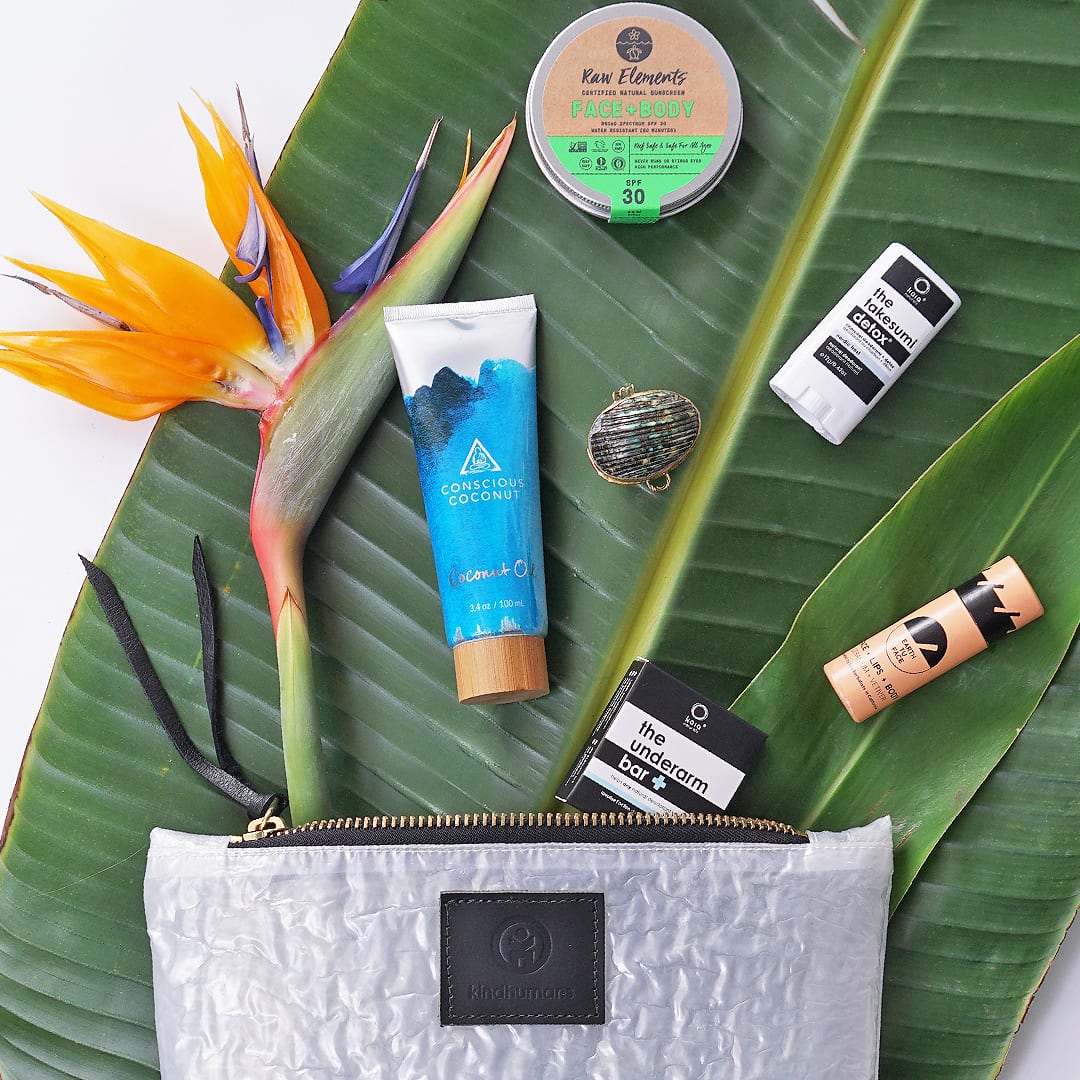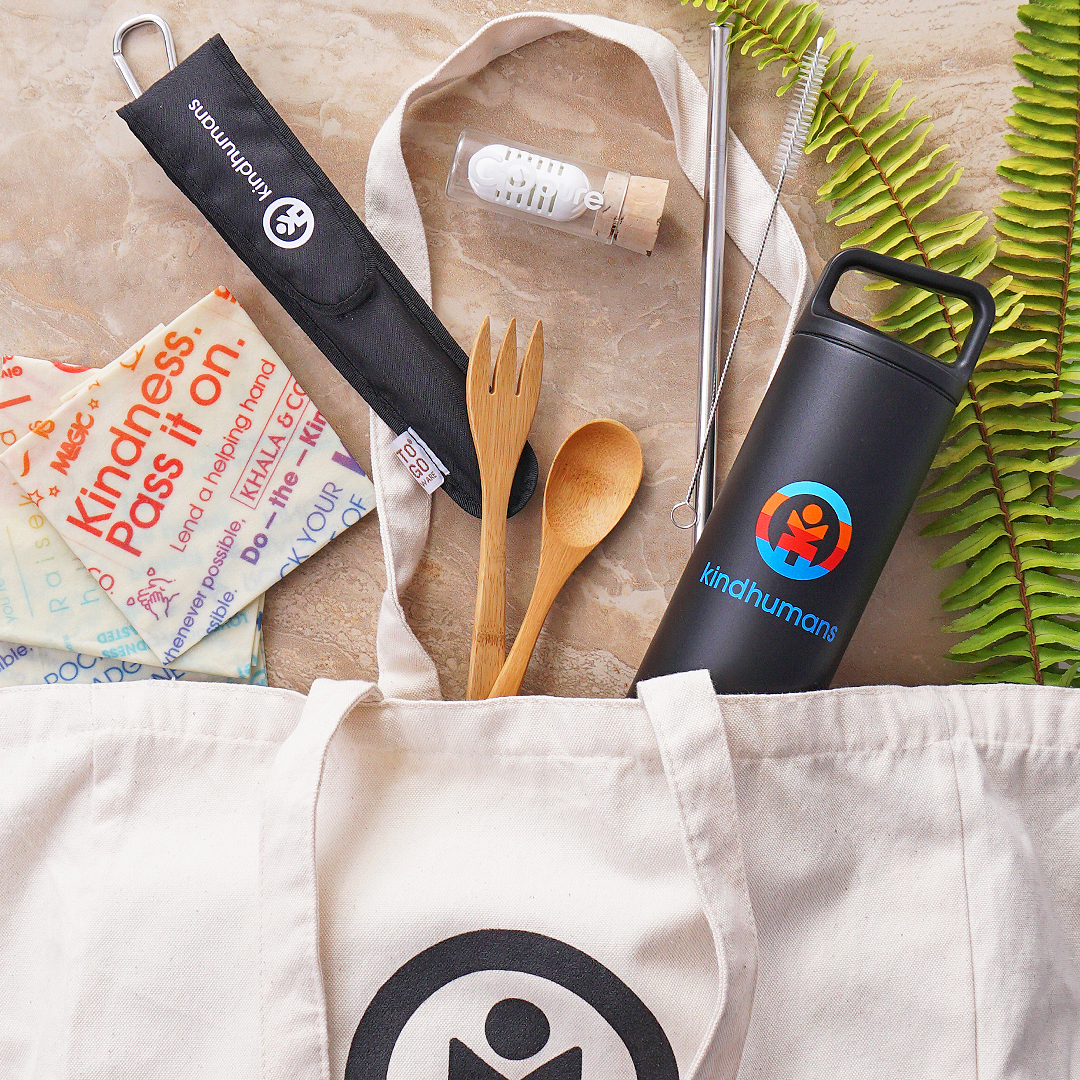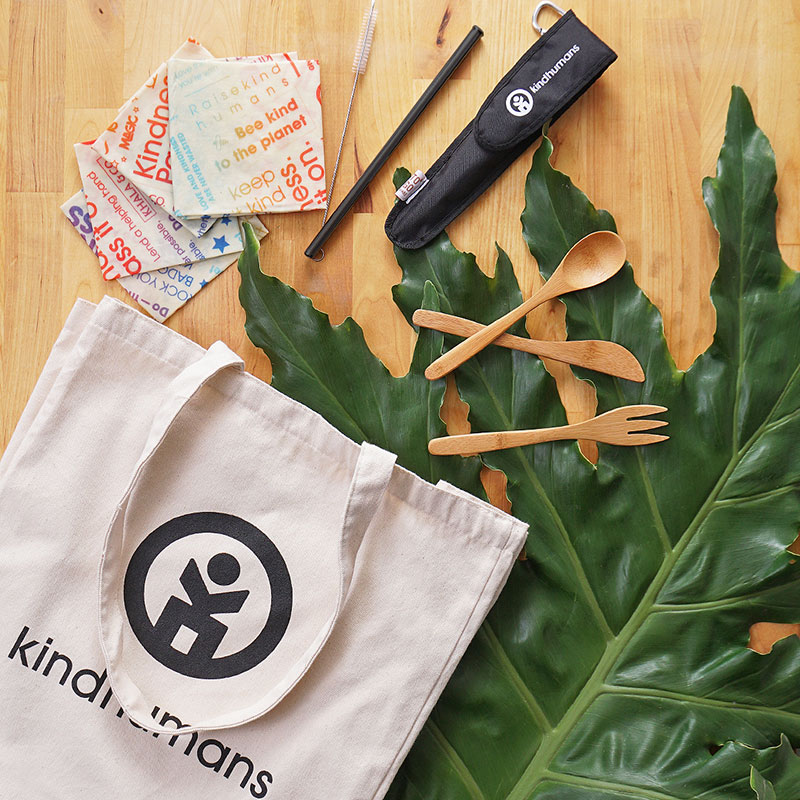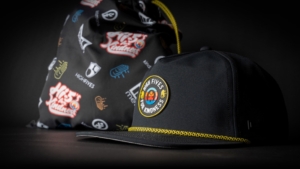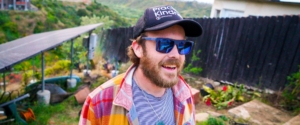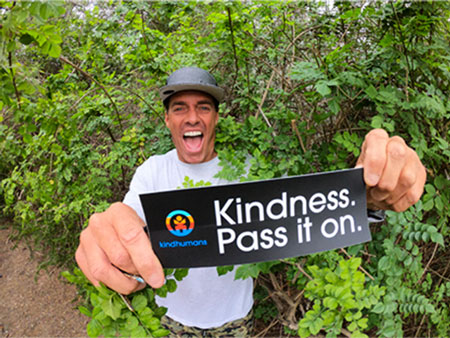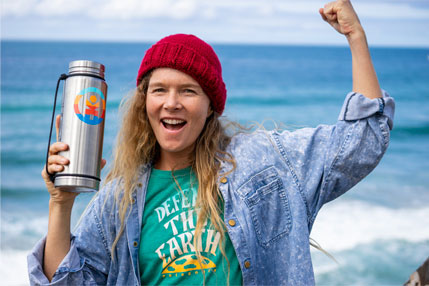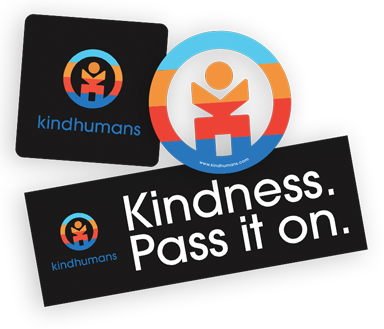
20 Ways to be Kind to the Planet
Tips and Tricks20 Ways to be Kind to the Planet
Meet kind human Kaitlyn Dickie. She has always been passionate about making an impact and has made it her goal to educate and inspire people to lead a life that’s kinder to the planet. By creating and sharing plant-based recipes and zero-waste tips and tricks, and educating people on cruelty-free products, she makes living a kind-to-the-planet lifestyle easier, more affordable, and accessible for everyone.
With a new year and new decade at hand, Kaitlyn has put together twenty ways to start the year more sustainably. Whether you’ve already mastered recycling, you’re a ninja at finding unique pieces in thrift stores, and you’ve made the switch to a vegan diet, or you are just starting your sustainable journey, we hope you find something in this list that helps you to be even kinder to the planet.
1) Help keep our shorelines clean by refilling a reusable water bottle instead of purchasing it in plastic.
Sometimes we don’t realize how quickly things can add up. For example, if you switch to a reusable water bottle and refill it four times per day, you’ll be saving 1,460 plastic water bottles per year – all by yourself! Get yourself a double-walled bottle and avoid having Bisphenol A (BPA) leaching into your otherwise clean drinking water.
Pick up a Kindhumans x MiiR 23oz vacuum insulated bottle to start your journey.
2) Invest in a silicone baking sheet and stop using parchment paper.
I love my silicone baking sheets so much! They are easy to clean, they last a long time, and they help your baked goods cook more evenly, especially if you have older baking sheets. Did you know that parchment paper is not recyclable if it has any grease, oil, or food waste on it? If you must use parchment paper, try and get as many uses out of it as possible before throwing it away.
3) Pack your lunches in containers instead of sandwich bags.
Let me break this down for you; making your lunch and bringing it from home is most definitely a money saver (we know that), but what about a planet saver? Yup, you know it. If you’re used to packing sandwiches in little plastic bags, then not only are you probably used to eating squished sandwiches and snacks, but you could also save hundreds of plastic baggies per year by switching to a reusable container.
 Replace your plastic sandwich bags with a reusable container from ECOLunchbox.
Replace your plastic sandwich bags with a reusable container from ECOLunchbox.
4) Repurpose glass jars.
This might seem a little bit redundant but the number of uses for glass jars is quite remarkable. My favorite uses are for overnight oats, hummus, or salad dressings since the lids usually seal quite well. You can even get creative and use them as flower vases, drinking cups, or desk organizers! Don’t forget to keep a few empty ones for your next bulk bin grocery shop.
5) Try biking or walking whenever possible.
Riding your bike boosts serotonin and dopamine production in your brain, making you happier! Skip the traffic and get some fresh air in your lungs while reducing your CO2 emissions and saving thousands of dollars.
6) Shop in bulk with reusable containers instead of plastic bags.
This might be one of my favorite tips because I have saved so much money by stopping by the bulk store before heading to the normal grocery store. I also find it so satisfying filling my jars or containers with all my favorite snacks or baking ingredients. This is also a bonus if you live alone and only want to shop for one meal at a time. If a recipe calls for one cup of something, you only have to buy one cup resulting in less money spent and less food wasted.
7) Start asking for no straw when out at a restaurant (or bring a reusable one instead).
I find it funny when I ask for no straw and people’s response is often, “Oh, yeah, save the turtles;” because at this point, it’s about saving humanity too. Do yourself a favor and diminish your chances of getting a “smoker’s lip” wrinkle, and skip the straw altogether! Thank me later. 😉
Save a turtle by using a Simply Straw.
8) Wash your clothes on cold and hang them to dry instead of using the dryer.
Washing your clothes using the cold setting on your washing machine saves money and it’s better for mother earth! It’s something you may not think about because you don’t feel the temperature of the water that is washing your clothes, but the truth of the matter is that you’re paying to heat that water! Not to mention, heat can break down the dyes in your clothes and you also risk shrinking some of your more delicate items. Clothes last longer when washed on cold, and warm water actually locks stains in too. Who knew?
Make your clothes last longer with a Meliora stain stick.
9) Eat more plants.
Everyone knows by now that eating plants has many benefits to your health, the environment, and animals, but do you know how much of an impact you have when you stop eating meat and dairy altogether? Check out this online calculator and feel good about the changes you make towards a healthier you this year.
10) Educate yourself on your local municipality’s recycling program and post the info somewhere in your house to refer to.
Recycling programs vary from city to city so to determine what can and can’t be recycled check out your city’s standard practices. I printed out a sheet and stuck it to the inside cupboard above the garbage so anyone can easily refer to it and find out if something belongs in the garbage or the recycling. Keep in mind that reusing is always a better option so before sending it to the curb, get creative and use everything as much as you can.
11) Check out your local thrift or consignment stores.
What a time to be alive: thrifted items are a huge trend right now and for a good reason! You can find some super cool, high quality, mint condition clothing items for rock bottom prices just by checking out your local consignment store! For every second that you’ve spent reading this post, nearly 10 meters of fabric is being dumped into a landfill and burned. Cut the demand for the fast fashion industry and stand out with your unique style.
12) Bring reusable cutlery and a bag to pick up your takeout order.
Next time you don’t feel like making dinner at home and just want to pick up some takeout, call and ask if you can bring your reusable container to take it to go. I have never had an issue with this, and most restaurants are more than happy to oblige, especially if you tell them why. Offer to show up 5 minutes before the quoted time so that they can plate your meal directly into your containers. Refuse the plastic bag and plastic cutlery as well and you’re good to go. Our planet will thank you. Click here to learn more about the environmental impacts of plastic cutlery and single-use takeout containers.
Ditch single-use plastics with a Kindhumans reusable utensil kit.
13) Opt for oat milk in your latte instead of cow’s milk.
Of course, any plant-based milk is going to be better for your health than dairy milk, but if like us you’re in search of the most sustainable milk alternative, then your best bet is oat milk. Of all milk alternatives, oats use the least amount of water for production and are much more nutrient-dense than almond milk. According to an LCA Study conducted in Sweden, oat milk production results in lower greenhouse gas emissions and 60 percent less energy used compared to cow’s milk. It also uses 80 percent less land. May I recommend an oat milk turmeric chai latte?
14) Switch to a solid shampoo bar and solid soap bars around your house!
I’ve used solid shampoo bars for years when traveling abroad and I recently made the switch to using them full time. They are biodegradable, they last up to 80 washes (3x longer than a medium-sized bottle of shampoo), and they can be used on your face, body, clothes, hair, etc. There are a variety of different types of shampoo bars available nowadays so if you try one that doesn’t work super well with your hair type, don’t give up! Keep it as soap or give it to a friend to try out. Part of the fun is trying new local shampoo bars that smell amazing.
Cut down on packaging with shampoo and conditioning bars from HiBAR.
15) Look for a zero-waste store in your city or when traveling.
Lucky for us, with the vast amount of information on the internet we are only a short google search away from finding zero-waste stores in nearly any city. A website called litterless.com provides a simple grocery guide to zero-waste stores in the United States. If you don’t live in the U.S., just type your city followed by “zero waste store” and I think you’ll be pleasantly surprised by what you discover.
16) Pick up garbage when you pass it on the street!
There are many reasons to pick up plastic if you see it on a hike, on the beaches, or anywhere out in nature, but what about the plastic and trash you see in the city? Picking up trash in more public areas is a great way to spark a conversation with people around you. You never know who you are inspiring to go and pick up trash themselves. Then again, maybe they are the ones littering and your small gesture will make them think twice about throwing garbage on the ground next time.
17) Make the switch from your plastic toothbrush to a bamboo one.
The vast majority of all toothbrushes in the world are made from plastic. Unfortunately, bamboo toothbrushes are not 100% compostable just yet (as most bristles still need to be cut off before you stick it in the ground), but done is better than perfect, right?
Brush better with a bamboo toothbrush from Humble Co.
18) Shop local and in-season whenever possible.
According to the Center for Urban Education about Sustainable Agriculture, it is estimated that the average meal in the United States travels roughly 1,500 miles to get to your plate. Transporting food from far-away places has become such a norm that preservatives go hand-in-hand with keeping fruits and vegetables looking fresh after traveling such long distances. Preservatives are like anti-jet-lag pills for your food… sounds appetizing, doesn’t it? Try shopping local and in-season; your neighborhood vegetable farmers, the planet, and your body will thank you! According to ancient ayurvedic philosophy, eating foods that are in season aids in digestion, immunity, moderating body temperature, and much more.
19) Make a habit of bringing your reusable mug for beverages!
Did you know that the majority of coffee cups are lined with plastic polyethylene so that they can be waterproof, making them not recyclable? Bringing your coffee mug is not only environmentally friendly, but cafés often offer a discount…and your coffee stays hot longer too.
Keep the planet cool and your coffee hot with a Kindhumans Reusable Tumbler.
20) Slowly start switching over your products to zero-waste ones.
This is my number one tip for anyone wanting to switch to an eco-friendlier lifestyle, so as not to get overwhelmed: START SLOWLY. That, and don’t be hard on yourself. There will be times when you ask for no straw and the server forgets. There’s nothing you can do in that situation except reuse it. There are many online resources such as Pinterest, blogs, google, etc. that can help make the transition to zero-waste products more accessible…and finding out what works best for you is all part of the fun!
Visit the Kindhumans Store
Kind to Yourself Kit
$149.00
Sustainable self care products, made by ethical brands with clean ingredients.
Author Profile:

Kaitlyn Dickie was born and raised in beautiful British Columbia, Canada, in a gorgeous little town called Kelowna. Check her out on Instagram: @kaitlyndickie and her blog: www.kaitlyndickie.com.
“Kindness plays a huge role in my life. Kindness dictates my relationships, friendships, business partnerships, and most importantly the relationship with myself. Not only is it important to me that I am kind, but that I am surrounded by kindness as well. I try my best to live kindly every day and remain aware of the impacts that the decisions I make have on the planet and those around me.” – Kaitlyn Dickie









